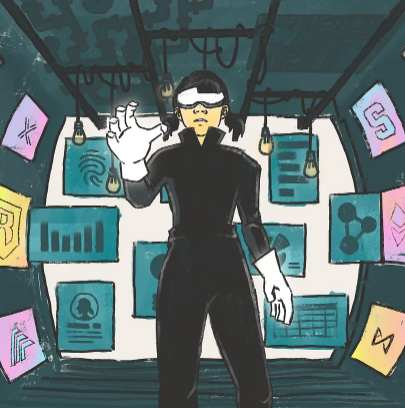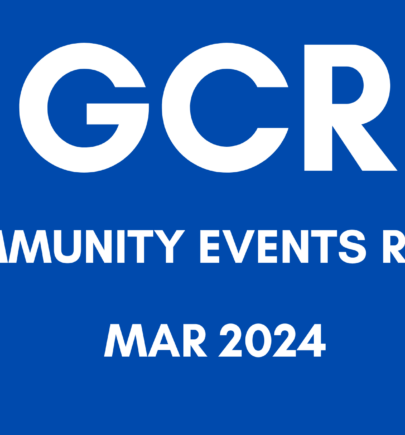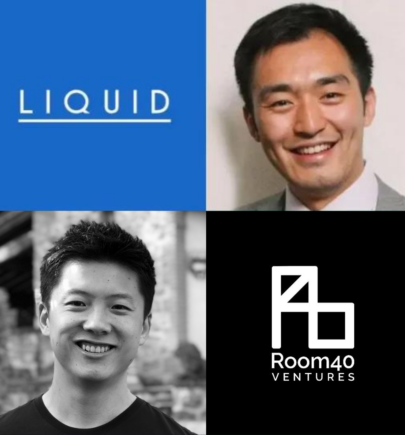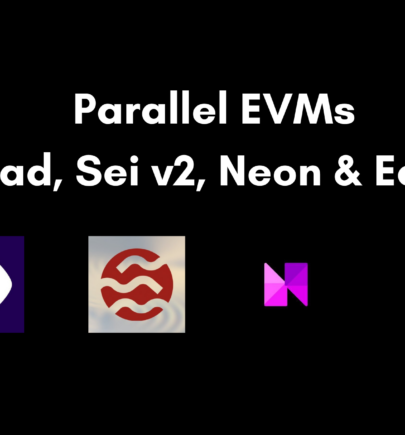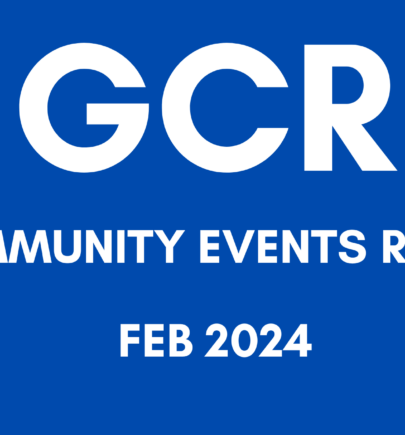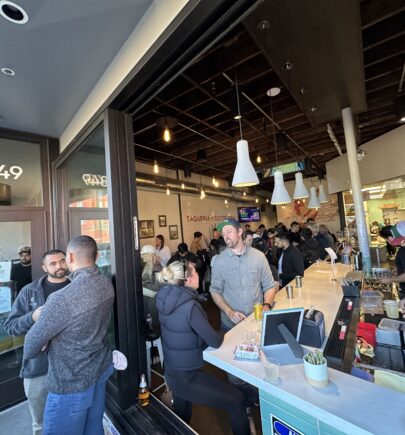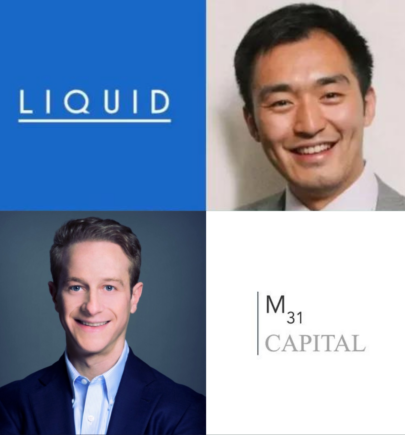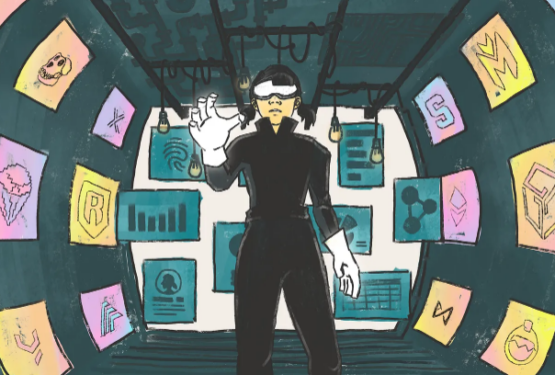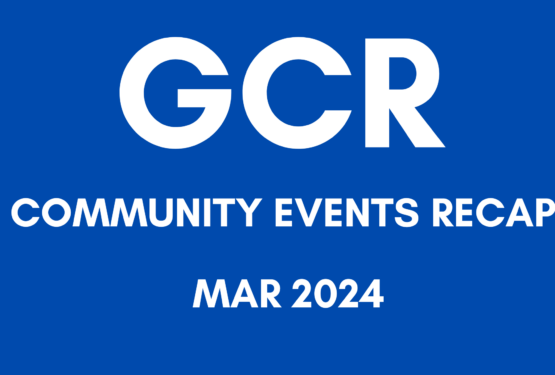Tezos Southeast Asia on STOs in Thailand, Regional Attitude to Blockchain and TZ.Ventures
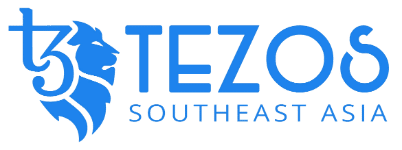
Can’t travel to Asia anymore due to Covid-19? Can’t have that meeting that you wanted anymore with that executive?
As our team receives ongoing questions and pings from our western readers on the things happening in Asia, we are re-surfacing some of the in-depth coverage interviews and write-ups of notable themes, organizations and figures in Asia that continue to be relevant in the cryptocurrency circle. We hope that once travel opens up again, you’ll be more prepared than ever to pursue and learn about the happenings in Asia.
This is an interview transcript with Tezos Southeast team, featured in the Tezos in Asia Podcast. You can listen to the podcast in iTunes, Overcast, Spotify.
Joyce Yang
Welcome to Tezos in Asia; a series featuring and showcasing the growing Tezos communities in Asia. I’m your host Joyce Yang, founder of Global Coin Research. Follow me in my journey in exploring and meeting the various Tezos communities in Korea, Japan, Southeast Asia, China and more. Learn about the crypto happenings in each of these countries, the cultural backdrop, and regulatory frameworks, and the exciting progress these Tezos communities are making locally.
In this episode, I’m in Thailand at the DS summit, hosted by Elevated Return and Seamico Securities. Back in February, Elevated Returns, a New York-based financial group focused on digitizing traditional financial assets, announced that it has selected Tezos as the blockchain platform to offer Elevated Return’s tokenized real-estate offerings. At the DS summit, Elevated Returns announced that it will dedicate $100mn dollars of the $250mn committed this year to tokenize the real estate market in Thailand.
Now, I speak with Caleb Kow, president of Tezos Southeast Asia, TSA for short, and learn about the details of this partnership. In our conversation, Caleb also talks about TSA’s partnership with a leading local university to develop the first blockchain education and research program in Thailand and shares the blockchain trends in Southeast Asia overall.
I’m here speaking with Caleb, president of Tezos Southeast Asia:
Hi Caleb.
Caleb Kow
Hi Joyce.
Joyce Yang
It’s good to speak with you. You must be very busy today.
Caleb
Oh, yes. We’ve had a really good event, and everyone’s asking us about the Tezos platform as well as its multiple practical real-world uses, what are we doing here, and this partnership between Elevated Returns and Seamico to use Tezos technology, so there has been a lot of interest for sure.
Joyce Yang
Yeah. Can you tell us a little bit more about that partnership?
Caleb
Yeah. So sometime back in the news, I believe you will know that Elevated Returns announced that they’re going to tokenize up to a billion dollars worth of STOs on the Tezos platform. So Thailand is the first initiative that they’re working on with a leading property developer and they are targeting to actually tokenize up to 100 million USD worth of properties here. And this is going to be luxury properties that are very valuable from an investment point of view as well as from a demand point of view. So this is the first step that they are working on, and today happens to be the press release between the 3 parties.
I’ve just sat through a press conference whereby the local media was asking a lot of questions you know, pretty much around what’s the opportunity is, how do people perceive it, and what’s really the factor that’s driving this whole interest. So it’s pretty new, but a lot of people are paying attention to it.
Joyce Yang
Yeah, that’s great. It’s super interesting to be here and seeing the scene around STOs because we haven’t seen much of that happening recently. Can you tell us a little bit more about Tezos Southeast Asia as an organization and your role there?
Caleb
Yeah. So Tezos Southeast Asia was formed last year sometime in June. And our mandate is really to promote the awareness of the Tezos platform and its associated technologies within the region. So Southeast Asia is loosely comprised of countries that are Singapore, Malaysia, Indonesia, Thailand, Vietnam, Philippines. So when we first started, our goal was really to promote awareness as well as to reach out for educational initiatives. Part of that involves talking to universities about our technology, figuring out whether we could partner with leading researchers to be able to contribute back to the Tezos protocol, and at the same time to identify good developers so that they could start writing tooling and UI enhancements for other developers to start building on top of Tezos.
Gradually we’ve kind of see our role also evolved into handling events, supporting commercial activities such as this Elevated Returns partnership with Seamico here in Thailand. We find ourselves following where the market goes, enabling discussions to happen, and how people look at the Tezos ecosystem as a whole and what they want to build on top of it.
Joyce Yang
Can you tell us a little bit more about your role?
Caleb
So my official title is President. My unofficial title is I do everything else that nobody wants to do, but it’s a very small team, and everyone supports each other. While we have kind of have roles that are defined, we also double hat, triple hat many different roles.
In Tezos Southeast Asia, we are a non-profit foundation, the board members comprise of people from an entrepreneurial background, finance background, and legal background. we all come together to be able to form this his management structure that then oversees the employees. So right now, we have 2 full-time employees in Singapore and another 2 developers in Taiwan.
They perform a variety of roles ranging from helping companies understand Tezos, meeting with MNCs to explain about how the technology could potentially be integrated into their services, organizing meetups, events around the region, and even writing simple proof of concepts for companies that want to get started but don’t know how to get started on Tezos. So it’s really like a very big scope that’s keeping us busy.
Joyce Yang
Yeah, I’m sure you guys are very busy. Can you tell us a little bit more about what you’ve been focusing on the last few months specifically with Tezos Southeast Asia?
Caleb
Tezos Southeast Asia has been in the last few months very focused on kind of coordinating activities between different regions in Asia. You would probably already know that there is a foundation in Japan that’s fully independent, there’s a foundation in Korea that’s fully independent, and China is also starting its own local foundation that’s run fully by locals.
Asia itself represents a very unique approach to community building an organization which is very new to the whole crypto space. You know, we will see companies, big companies that have run their ICO, they’ve set up official management structures, and it’s very directed. But Tezos is a community, and if we loosely term Tezos Asia as we’ve coined that term, then Tezos Asia actually means every one of the community members in Asia. And that means a lot to the different leaders because it’s both an identity as well as a common goal that everyone works towards.
The community leaders in Korea, for example, have been around pre-ICO, and they started running activities and meetups on their own, so they have formed their own unique flavors of approaching community. In Singapore, we are different because we focus on different markets, different populations. And even in our respective countries, people adopt crypto differently, so we are kind of separate, but we can relate to the same challenges that each other will face, and therefore we support each other very well. I always kind of joke with the community leaders and I say that “if we were a startup, we would be a very good entrepreneurial team” because we are everywhere and yet we are still pushing towards the same goal. And that’s very rare to be able to find in an organization.
Joyce Yang
It’s really true. Yeah, what was your background before this and kind of how do you see in the blockchain space evolving overall?
Caleb
I come from the IT infrastructure data center background. I build the boring stuff that people end up building cool applications upon. It’s a very critical part of powering the internet that sometimes gets overlooked you know, like, you need to have reliable data centers, you need to have networking systems that don’t fail because that is the backbone of the internet. That really helped me get a better understanding of blockchain because if you think of blockchain and even crypto to a certain extent (in light of their development stages), these are really in their infancy stage right now.
It’s just like the internet back in the late 90s; when everyone was still figuring out what does it mean, do they really need to get on the internet, do they even need to get a dial-up account you know? And people were pushing the boundaries to say that this is the future, this is the way people are going to communicate, but you couldn’t really see the actual applications. I think we’re at that stage right now and if we can help users to unlock the potential of blockchain, not in a hyped up manner, not to be over-marketed, but rather looking at day to day applications and asking hard questions about how we can use this technology meaningfully in very simple applications, then that’s good enough as a first step, because then we’ll be able to show the layman or someone who’s not really too into blockchain how it could tangibly impact their daily living.
That would be the first step. And that’s what we are doing at Tezos Southeast Asia, because we’ve been building training curriculum, we’ve been talking to universities. Just this month in fact, we sponsored the National University of Singapore for their high school holiday computer science training programs. We want to be able to equip the next generation with the right knowledge and the right tools to be able to understand these technologies that will probably be a very common part of their lives in the future.
And by getting them started early, the hope is that they will develop a healthy interest, build their own knowledge, explore, figure things out and eventually come to a point whereby they can say “okay, I would like to contribute back to either Tezos or the blockchain community as a whole.” That’s what we are really seeing ourselves taking a lead in, especially for this year. We’ve also been working on a partnership with Chulalongkorn University. They are looking at the curriculum for incorporating Tezos related content into existing programs. That’s going to be a big thing if it does go through because then you’re going to be able to enable students to undergo a disciplined training program, know the basics, know what it means and have a healthy understanding of how blockchain technology such as Tezos could help them in future.
Joyce Yang
What’s the university called again?
Caleb
Chulalongkorn University. I believe they’re the largest and the most well-known University here in Thailand? yeah, constantly ranked the top in the country.
The faculty at Chulalongkorn University actually is very forward-looking. They see that this is the future and they want to make sure that they don’t just put their students through a program that imparts knowledge, but they also want the students to go through a practical application phase. They’ll be looking into how can they get students to do hands-on-coding, writing smart contracts, even using the Tezos platform as a good way to write a proof of concept applications. You’re kind of going through the education phase in a sandbox environment you know, feel free to make mistakes, tinker around a little bit, break something, but at the end of the day, it pushes them to think about what’s coming next.
Joyce Yang
Yeah that’s great. What are the trends that you’re seeing in Southeast Asia with blockchain and maybe Tezos specifically in Southeast Asia?
Caleb
I think in Southeast Asia, Tezos is being perceived and adopted differently across geographic regions. We’ve talked about the STO ventures in Thailand. Probably in a different country, FinTech would be an interesting topic for Tezos, particularly because it is perceived as having attributes that make applications and transactions much safer.
The technology incorporates elements of formal verification, and it’s able to evolve its core protocol in the long run. It also represents a potential for developers to suggest their own add-ons, upgrades in the longer run. I’m particularly looking forward to seeing what some of these developers from different countries would propose and to even see what are some unique local business needs that arise and attempted to be proposed. And truly the aim or the end goal is to build up vibrant communities that contribute to the protocol, to have it be flexible and adapt according to tomorrow’s needs.
Joyce Yang
Yeah, definitely. What are the kind of different unique features of each of these countries and their approach to blockchain?
Caleb
There was an interesting question that one of the press reporters asked earlier on in the media interview; they were asking about you know, how would Thai people react to this potential of learning Tezos and how would they tangibly be able to implement that in their daily living? So my simple answer to them was that Thailand is a country that has huge mobile phone penetration rates. That is the new future and that’s what everyone is embracing right now. Connectivity is expected, even high-speed connectivity is kind of the default already.
Because of that, you see such a huge population of people not just getting online, but they’re actively consuming day-to-day service as part of their daily living. What it means for Tezos in essence is that there is a higher chance that they will be open to adopting newer technologies because the population is already very savvy, it’s not a mobile-first generation anymore, it’s a mobile-native generation that grew up with it, they clamor for the newest smartphones, they are so updated on global news because of communication channels and news being so readily available. It’s really pushing the population to want to consume new things and try out what’s new, what’s coming next.
So in terms of mass-market potential, just because of the sheer population size, there’s a lot of opportunities for blockchain to help in terms of efficiencies, helping to mitigate very mundane administrative processes for a huge population, and perhaps automating them in smart contracts. That’s where I kind of see Thailand having their own unique approach. And then perhaps in a few more years time as more are being trained through the University programs we mentioned earlier, they would be able to go to traditional industries and say “Hey, share with me your problems, perhaps I can think of a good way to build something to help you operate more efficiently.” So that’s the goal.
Joyce Yang
Yeah, for sure.
Caleb
For Singapore, it’s a little bit different because Singapore is a country that’s smaller in population; in fact, significantly smaller.
The population has to focus on kind of the services industry; financial services, things that are very quick to move I would say. So the nature of it is going to be less dependent on manpower driven initiatives, but more on automation. How can you get more efficiency? How can maybe even the intersection of robotics and blockchain and IoT, help to lend more relevancy in what we know in the public sector, in private businesses? So the nature of it is different, and Singapore by virtue of being in between so many Southeast Asian countries, is also kind of a cultural exchange point whereby we can facilitate a lot of communication, we can facilitate things like global events being held there, and everyone likes to come together in a nice way to network. So it takes on a different approach I would say.
Joyce Yang
Yeah. And the regulators there are also very open and transparent. Let’s talk about regulatory conditions. Anything interesting you’re seeing there? We’ve covered a little bit on Thailand and Singapore; what are the some of the promising breakout countries that you think people should focus on?
Caleb
Yeah, Thailand is interesting from the point that the Thai Securities Exchange…. At least throughout our discussions with them, we took back the impression that they are very knowledgeable. They know a lot, they’ve done a lot of research, they always want to come up with policies that will help people to be able to be protected in the event of securities not working out as well as they thought it would. So they are really thinking a lot on behalf of the people, which is good you know, we don’t want investors to be exposed to unnecessary risks. The Thai authorities are really investing a lot in finding out, in having discussions, in being very open, sharing their thought processes and things like that.
The country I feel is very interesting in the longer run would probably be Indonesia. Indonesia is a country that most people maybe even including myself, love to go for vacations in?—?when you think of Bali and you think of different very nice tropical islands. But Indonesia is representative of so many islands joined together, the population is increasingly mobile; very very tech savvy as well, and they consume services so quickly; online services. I have a customer in Indonesia whom I did some consulting with, and they’re the largest web hosting company in Indonesia. They will make comments and feedback to me about the types of customers they have, and, that was a few years ago, they would say that we accept payment from customers obviously through credit cards, Visa, MasterCard, but a significantly huge portion of the customers still prefer to pay by bank transfer. And why? We ask ourselves, is it because of convenience? Is it because it’s cheaper? You know, and obviously, there’s a business case from the merchants not to use credit cards because they have to pay huge service fees, but on the other hand, we kind of realized that it was also a market perception issue. Just because everyone pays by bank transfers, so it is an accepted way. And that was many years ago. I believe now the adoption rate for payments not just by credit cards, but even online wallets are increasing. So it’s very ripe for blockchain to help in payment settlement, even cross-boundary payment settlements, remittances, so many areas that could be better optimized in terms of costs. So I would think that the country is ready for a huge wave of change where payments are concerned.
Joyce Yang
Yeah, and that’s really great, and an opportunity that we probably don’t see in too many places where you have a large potential adoption as well as growth…
Caleb
Yes, the population needs to be all around the world even you know, to…. Increasingly, Indonesians are starting to travel more, starting to explore new countries, work overseas, send money back home, things like that. As that kind of amplifies and expands by itself, the need to support these payment methods is going to start to grow accordingly I think.
Joyce Yang
Yeah, that’s really insightful. And you guys are also launching an incubator. TZ Ventures.
Caleb
That’s right. The thing that’s personally exciting, to me at least, is I would say, finally seeing so many applications that have been in the process of being built on Tezos finally making it to the public. Because, at least here in Tezos Southeast Asia, we talk a lot to startups, we talk a lot to people who will ping us privately and ask questions about “oh, I need to build this, can you help me along with it? Can you refer me to this and that?” And we know that these are very very good ideas. These are solid ideas that require an entrepreneurial mindset to pioneer and to push the boundaries of how we look at things today. So I’m personally very excited to see some of these ideas mature and start getting traction and even be there to help them to amplify that. If you think of the various community organizations in Asia as launch pads for each other, a startup in Singapore could tap on us and, to our relationship with Tezos Korea for example, and gain an immediate market access point, gain localization, and gain very unique business knowledge, even helping them gain publicity. And that’s very valuable for a startup who wants to build an application. We see that as something that’s very exciting. And increasingly, as we communicate more with our counterparts throughout Asia and even to a large extent throughout the whole world, I’m very excited to see how we can help these startups or ideas flourish just pretty much anywhere.
TZ Ventures is going to be our very first foray into an incubation program. We’re putting together a team that’s going to help these companies answer the very basic question of how can I build something on Tezos in the right way. And what I mean by that is that there are so many incubators out there, there are so many startup accelerator programs, just do a Google search and you’ll find so many. But we see ourselves in a very unique niche because implementing ideas or contracts on Tezos requires a healthy understanding of why do you even choose the platform. And we’re hoping that we can help these companies build in the right way at the beginning, saving them a lot of unnecessary time going in circles, helping them to gain an immediate understanding of what should and should not be done, and what are some pitfalls to avoid? At the end of the day, time is money as well. So we choose to say that the time that we invest in is worth a lot because you’re getting the intangibles that have a very strategic value. At the end of the whole incubation process, we would take these startups and present them to VC partners, very famous investors within our network, or maybe even investors that had participated in the fundraisers. There are so many potential possibilities that we could work on, but we also want to be a little bit selective because we’re working on the first rollout of this program, and we have to make sure that whoever we work with, we can commit to them, and likewise they are also committed to us. Then it means a lot in terms of helping them grow in the long term.
Joyce Yang
To learn more about the accelerator, go to tz.ventures.
Thank you for listening. To learn more about Tezos and the Tezos communities, make sure to check out the website links in the show note and follow Tezos Southeast Asia on Twitter at AsiaTezos. This podcast is produced by Global Coin Research.
Disclosure: Joyce Yang is a consultant to Tocqueville Group, a Tezos protocol company.
